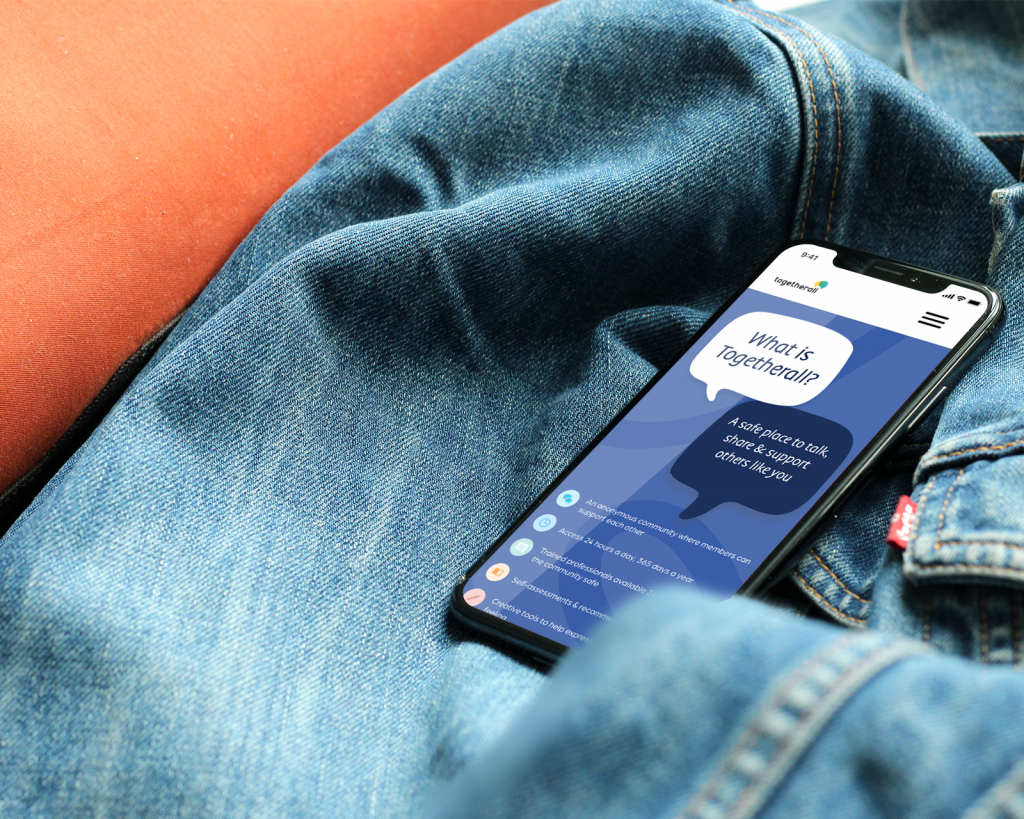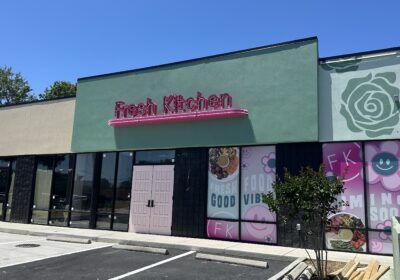Counseling Center, SG set to implement anonymous mental health app

The Counseling Center and Student Government (SG) are finding new ways to connect with students — even after business hours — through a 24/7 anonymous social media-style counseling app.
As a way to improve student mental health after experiencing high volumes of after-hours calls to their emergency line, the Counseling Center and SG are partnering with Togetherall, an anonymous social media-style counseling app which focuses on peer-to-peer connection.
Offered to organizations worldwide, Togetherall focuses on connecting students to their peers, as well as connecting students with licensed counselors at any time of the day. The Counseling Center plans to launch the partnership around Nov. 1, according to Scott Strader, director of the Counseling Center.
USF will be one of the first 20 universities to implement the app worldwide, and the second in Florida, following the University of West Florida, which introduced the app to its students in early October.
Lisa Ferdinand, assistant director for clinical services at the Counseling Center, said that this launch date is important in order to help students while they are away from campus during exam week and the holidays.
“We really want to get it up and running as soon as we can,” she said.
Once the app is launched to USF students, they can access it by logging into the Togetherall website using their MyUSF login credentials. The link will be advertised in promotional materials and social media posts that SG and the Counseling Center will put out.
“The [USF] email is what makes you eligible to join the Togetherall community, so as long as they find the Togetherall link and log in with their USF email, they will be able to have access to it,” Strader said.
Once inside the app, students will be able to anonymously chat with people around the world, meet with licensed professionals and access informational materials regarding mental health disorders like depression or anxiety.
“The anonymity is a big piece of people being able to feel safe and share whatever is on their mind,” Strader said.
The chats are divided into categories like “COVID-19” or “exam anxiety” and users can make their own categories, according to Ferdinand.
For instance, if a freshman is overwhelmed on their first day of classes, they can start a thread on the app about their classes being too full where people from all over the world, including counselors, can respond to their concerns, according to Ferdinand.
“My understanding is that there are these professionals who moderate the wall [that students post on],” Ferdinand said. “There are these algorithms built into the platform so that if you were to type in something like ‘risk, scared, death’ or a number of different words, that’s what triggers the moderators to get involved.”
These counselors are always available, according to the Togetherall website, and they can privately reach out to users if something in line with the algorithm triggers is posted.
The idea was first researched by the Counseling Center’s after-hours service, ProtoCall, when the employees experienced a call volume that was higher than expected, according to Ferdinand.
“They did all the research on what would be the best partner for them to manage providing more support,” she said.
Although call volumes have been higher this year due to stress from coronavirus and other individualized factors, including breakups and classroom stress, Ferdinand said that the Counseling Center still does not reach the majority of USF students.
“We know that about 10% of the USF population actively uses our services, which means that based on the national data for mental health concerns, there are a lot of students out there who could probably benefit from more support who are not coming into a center,” she said.
In a June 2020 study by the Centers for Disease Control and Prevention, 40% of U.S. adults reported that they were struggling with their mental health at the time of taking the survey. The use of the Togetherall platform is an attempt to quell that issue by providing an anonymous place to talk to peers and chat with counselors, according to Ferdinand.
“This will provide a lot of support for people who don’t think they need counseling, and may not need counseling, but would benefit from additional support,” she said.
The use of the app was first pitched to SG in a meeting to discuss Student Body President Claire Mitchell and Vice President Gustavo Spangher‘s initiative to improve student mental wellness.
“We met with them to talk about [the initiative], so it was part of that initial meeting that we pitched Togetherall to them and they picked up on it right away,” Strader said.
Strader also met with students from the St. Pete and Sarasota-Manatee campuses. He said that all parties were on board, so Togetherall will be available to students across all three campuses. No one involved in this implementation was willing to report the cost.
The Counseling Center and SG also worked with wellness students, according to Ferdinand.
“The content that will eventually be populated [on the site] will be part of our efforts and the wellness unit’s efforts to put out a lot of information that helps USF Bulls across all three campuses to stay well and engage in healthy behaviors, regardless of whether or not they are actively using our services,” Ferdinand said.
Strader and Ferdinand both hope that the use of Togetherall at USF will help students reach out to others when they need help.
“We are always thinking, ‘Well, who aren’t we reaching?’” Ferdinand said. “This is really an effort to get those students we aren’t reaching and sort of invite them in.”






